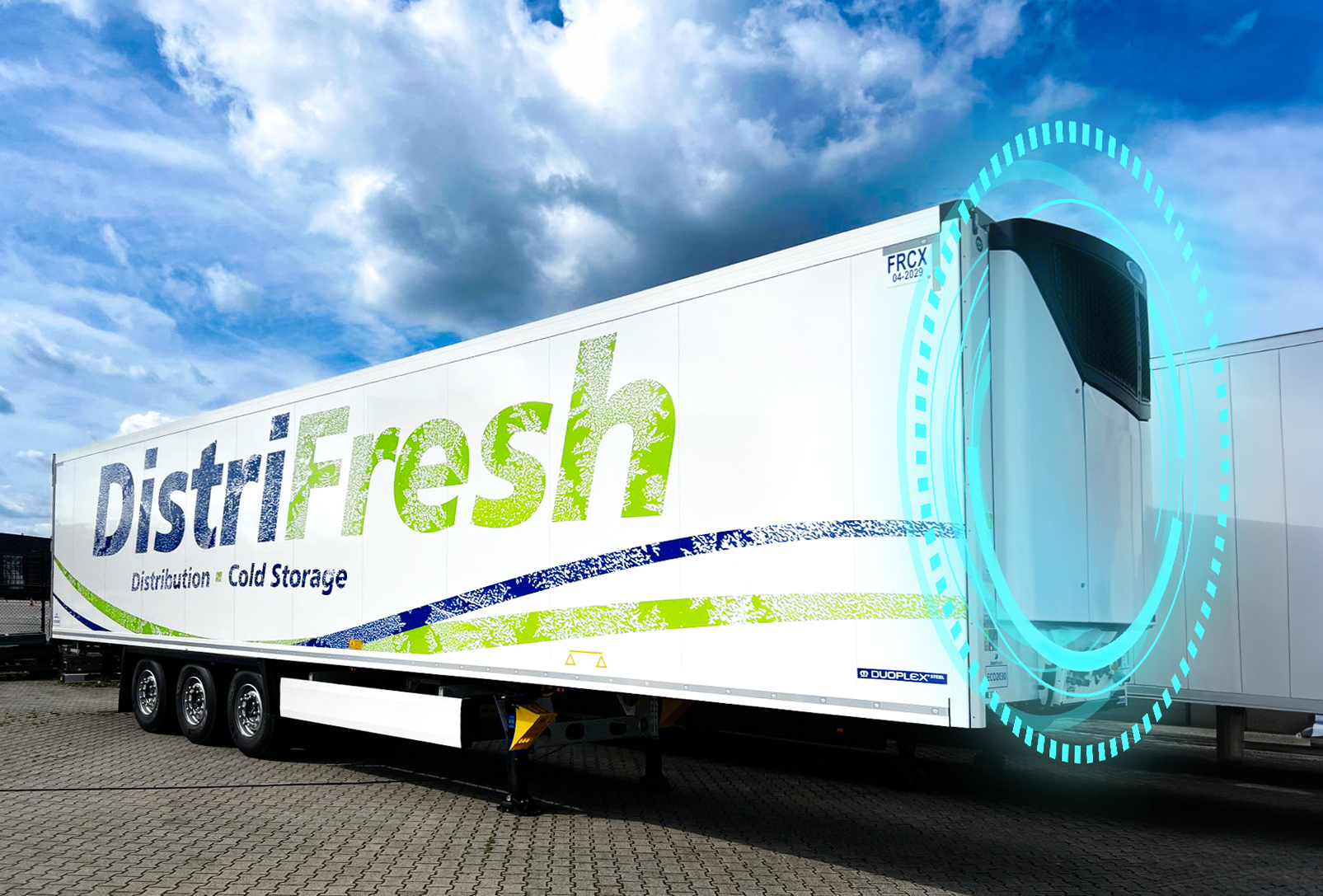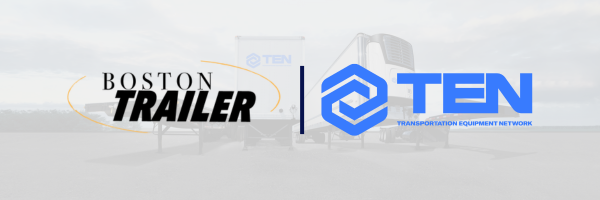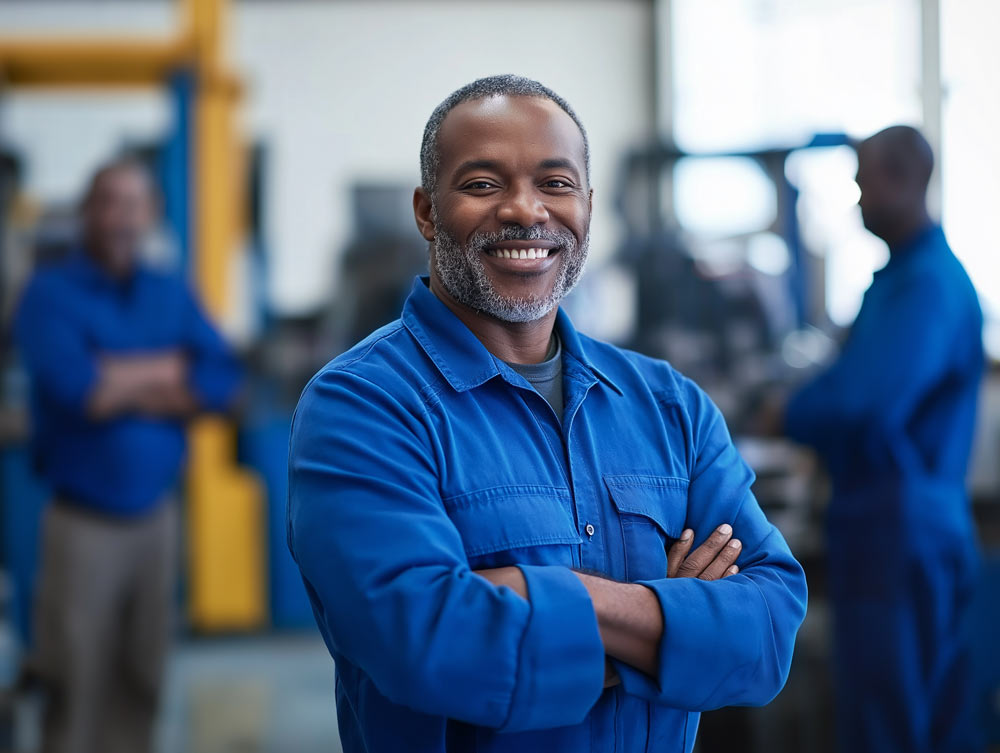Written by
Founding CreativeDistriFresh utilizes e-reefer technology to achieve goal of 100% electric customer deliveries

How did the adoption of e-reefer technology allow Vion Food Group subsidiary DistriFresh to achieve their goal of 100% electric deliveries to their customers? We talked to DistriFresh’s Manager Transport to find out why they selected TIP Group and Carrier Transicold’s combined solution, and how they worked together to overcome challenges.
“DistriFresh, a subsidiary of Vion Food Group, has embraced the challenge to revolutionize our operations, setting ambitious goals to reduce our direct fuel consumption by 40% and transition to 100% electric reefers [e-reefers] for deliveries to our clients by 2024,” says Koen Relou, Manager Transport at DistriFresh. “This strategic shift not only responds to rising fuel costs and our customers’ demands but also aligns with our commitment to sustainability, marking a pivotal step towards a greener future in our industry. Vion’s goal is a 42% reduction in scopes 1,2 and 3 non-FLAG (forest, land and agriculture) emissions and a 30.3% reduction in scope 3 FLAG emissions by 2030.”
Strategic shift to e-reefers
Since the latter half of 2023, DistriFresh has been utilizing 15 Vector® eCool e-reefers supplied by TIP Group and Carrier Transicold, achieving a reduction of 16.9 tons in carbon dioxide (CO2) emissions, as reported by the electrification dashboard in Lynx Fleet, Carrier Transicold’s connected cold chain platform. Although DistriFresh has employed e-reefers since 2019, partnering with TIP was a strategic move:
“We have collaborated closely with TIP for four years, building a strong and trusting relationship. So, when they offered a comprehensive package, the decision to go with their solution was naturally straightforward. We used our own knowledge and data for 75% of the business case calculations. TIP was instrumental in providing the remaining insights needed, leveraging their extensive experience and wealth of data to confirm our future direction and achieve our target of 100% electric deliveries to customers.”
e-reefer utilizing sophisticated energy recovery technology
Launched in 2020, Carrier Transicold’s fully autonomous Vector® eCool was an industry first. The unit combines Carrier Transicold’s E-Drive all-electric technology with a new cutting-edge energy recovery and storage system that converts wasted kinetic energy generated by the trailer axle into electricity, which is then stored in a battery pack to power the refrigeration unit. This loop creates a fully autonomous system that produces no direct CO2 or particulate emissions and is PIEK certified to operate below the 60 dB(A) noise limit. The company’s growing eCool range supports Carrier’s Environmental, Social & Governance (ESG) goal to help its customers avoid more than one gigaton of greenhouse gas emissions by 2030.
Challenge: Driver training
“Of course, there are always some challenges. At DistriFresh, we don’t have our own drivers; we work with about 250 to 300 charter drivers instead. These drivers might work with us one day and then not again for several weeks. Given this setup, one of our biggest challenges is making sure they’re all properly trained, especially since we’re dealing with sensitive cargo that needs to stay cool. It’s quite different from just filling up a diesel engine. For instance, if the cooling unit’s charge drops to 20%, the driver needs to know it’s time to plug in and recharge, not just pull into a service station. And, of course, how to handle the equipment.
So, every driver, whether they’re with us frequently or just now and then, gets this training. The experts from Carrier Transicold trained our onsite team who then passed on that knowledge to the drivers, showing them how to operate our equipment and what to watch out for. It’s all about making sure that everyone is on the same page and that the transition to using these electric cooling engines is as smooth as possible.”
Toward a fully electric fleet
“Now that we have achieved our goal of 100% electric deliveries to our customers, we are, of course, looking ahead at our intra-company logistics. With fuel-powered engines on the decline, especially with upcoming regulations against emissions, electric solutions are set to take the lead. We anticipate improvements in technology and a decrease in costs, which will reshape our business case positively. This evolution, alongside hopefully improved charging infrastructure in the Netherlands, will undoubtedly pave the way for broader adoption of electric transport within our company. We’re optimistic about transitioning to a more sustainable, cost-effective fleet that aligns with our environmental goals and regulatory requirements. This is not just a necessary change—it’s an exciting one that promises a greener, more efficient future.”
Featured
TEN Acquires Boston Trailer, Strengthening Position as Leading Trailer Lessor Across North America

TRENDING ARTICLES
Event

Winter truck and trailer maintenance: preventive or reactive? Avoid costly surprises!

TEN Acquires Boston Trailer, Strengthening Position as Leading Trailer Lessor Across North America
CATEGORIES
TEN
TEN Cool
